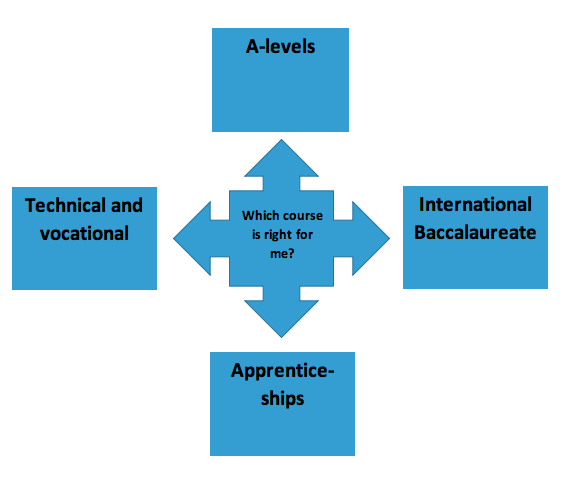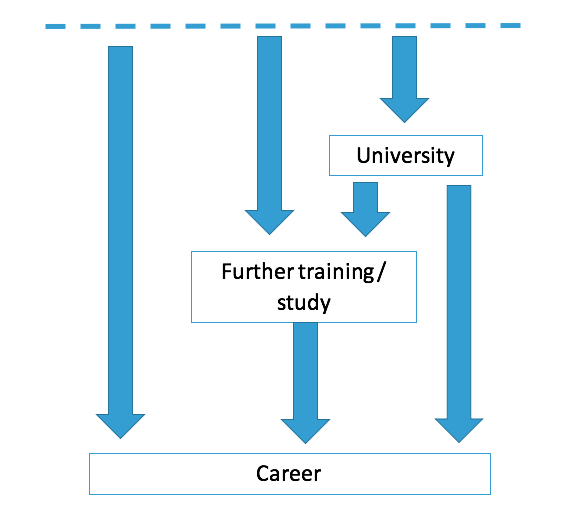Careers menu
What's next, after THS? Support for year 11s
All students in England must continue in education or training until 18 years of age. Our students have the following choices at the end of year 11:
- Full time study at a college, sixth form or training provider
- Full time work or volunteering combined with part time education or training
- An apprenticeship
As part of our careers programme, year 11 students are provided with a one to one guidance interview with a careers advisor.
The main colleges that students from THS attend are:
When choosing a college, we ask students to think about the qualifications and transport that is available. There are also many Sixth Form Schools in the local area, and some scholarships are available. We hold assemblies for the five main colleges early in the Autumn term and target individual students for specialist schools and colleges. We encourage students to apply by the end of the Autumn term – students need to talk to their tutors in the first instance about their plans, who will refer students to the Careers team for a Careers interview.
A-levels
A-levels are subject based qualifications that take two years to complete. They are typically taught through a classroom based system with students studying 3 subjects and maybe best thought of as an extension to the GCSE style of learning. Assessment is usually though exams at the end of the academic year with some subjects also including practical or coursework assessment.
International Baccalaureate
As the name suggest the IB is an internationally recognised qualification, taught in thousands of schools and colleges and accepted by universities with the UK and abroad. The IB allows you to study six subjects and is taught over three core requirements:
- Extended essay (EE): students research a subject from an approved list and produce an essay of up to 4000 words.
- Theory of knowledge (TOK): this course introduces students to theories about the nature and limitations of knowledge.
- Creativity, Activity, Service (CAS). This is designed to complement the academic side of the IB and requires students to engage in meaningful activities that demonstrate different skills.
Vocational and technical courses
Vocational and technical courses cover a wide range of subjects and career paths at a variety of levels. These courses can take the form of T-levels, diplomas, BTECs and NVQs. These paths may be more suited to students who are interested in a certain industry or who want to learn in a more practical way involving work experience. Teaching is through practical and theory based sessions with assessment being carried out more through coursework or monitored ongoing assessment rather than formal exams.
Apprenticeships
Apprenticeships allow students to learn through working and provides an opportunity gain work experience and to earn money through their course placement. Typically, students spend 4 days per week with an employer with the fifth day at college.

